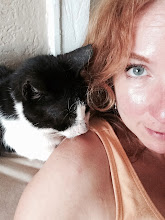You Think You've Got It Bad
Just for fun, here's the Grimm Brothers fairy tale "The Goose Girl," retold from memory, without looking it up, and with a certain degree of commentary, because this story popped into my head at work today; and frankly, I just never thought it made any sense.
Unlike all those other fairy tales.
A princess is traveling, accompanied by her lady's-maid, to a foreign kingdom to fulfill the terms of an arranged marriage. Now, the princess is a fairy-tale princess, right? So she's beautiful, and good, and kind, and humble.
Maybe a little too humble.
The lady's-maid, on the other hand, is arrogant, ambitious, and cruel. Halfway through their journey, she forces the princess to switch clothes with her, assuming her superior's identity. To conceal the crime, she kills... the princess' horse? Yes indeedy, she kills the horse, and beheads it. She has to, because it talks - which is apparently more than you can say for the princess.
So they arrive at their destination, the lady's-maid is wedded to the prince, and the poor princess (who really needs to learn to quit lying around on doorsteps with plastic daisies in her hair) is sent out into the fields to tend the geese. Her horse's severed head is nailed to the gate she must pass through every morning with her flocks. And every day, as she passes, she sighs to the horse's head, "Alas! woe is me."
"Tell me about it, princess," says the horse, who is kind of minus a body now. Also he's dead. Still, not only does he keep right on talking every day, but he addresses the princess with royal respect, not to mention a certain degree of patience in my opinion, when you consider that he could be seen as being a little worse off than she is. And you'd think their daily exchange would get pretty boring for him after a while. At least she has the geese to talk to.
Anyway, someone - maybe it's the prince (who is apparently wising up real fast to what a mistake this marriage was), or maybe someone else who goes and tells the prince, I don't remember - overhears this daily exchange between the goose-princess and her corporeally-challenged buddy, and the prince finds out what's been going on.
This is the point where you think, huh. (Possibly not for the first time.) Considering that not many horses talk even when they're alive, and this one chats you up despite being in a fairly unequivocal state of demise, maybe the maid should have gotten rid of the head somehow - buried it, dumped it in a pond, burnt it - oh, I don't know, really ANYTHING THAT DOESN'T INVOLVE NAILING IT UP IN PUBLIC.
So the prince throws this huge party, supposedly in honor of his new wife. Everyone's invited. And once everyone arrives, the prince calls his bride up in front of everyone, and says:
"Soooooo. What if, hypothetically speaking, there was this princess and this maid and the maid stole the princess' identity on the way to her wedding and married the princess' fiancé and made the princess work as a goose-girl and killed the princess' horse and nailed its talking head to the gate in the palace yard?"
"I'd be pissed," says the ersatz princess, who's a little slow on the uptake.
"So, and again we're just talking hypotheticals here," the prince continues, "what would you consider to be an appropriate punishment for a maid who went and did something like that?"
"Oh, I don't know," says the ersatz princess. "Just off the top of my head, I suppose you could, maybe, strip her naked and seal her in a barrel studded with ten thousand nails pointing inwards and roll the barrel down the hill, you know."
Well you are not going to believe what happens next. Yes! The prince does just exactly that to her - that'd be his wife, you know - and that's the end of her. Talk about being hoist by your own petard! That's irony, that is.
So then, with the marriage pretty effectively dissolved at this point, the prince marries his rightful bride, and everyone lives happily ever after.
Except possibly the horse. But you can't have everything.
Labels: livestock, princesses, victim mentality


1 Comments:
I hadn't read that story before. I read the synopsis on Wikipedia. I'm sure you have too by now and know that her mother's blood also could speak, the horse only said one thing (the same thing the mother's blood said) and that there was a weird thing with her brushing her hair that also made no sense and had no apparent relevance.
I once read a collection of Native American legends, and I found most of them to give me a similar reaction as I had in reading this one. I thought well, there must be a wide enough cultural gap that we just can't get it. I dunno.
Post a Comment
<< Home